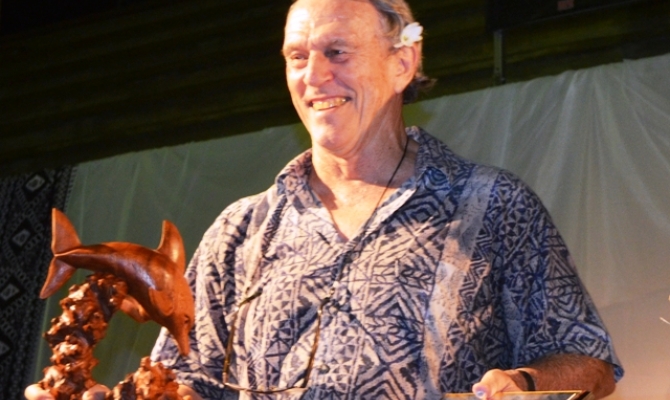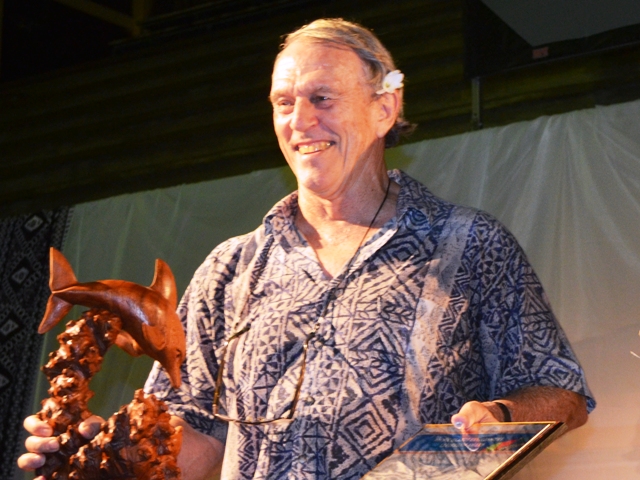
Island and Ocean Ecosystems
3 December 2013, Suva Fiji - By Eroni Tuinaceva, Journalism Student at Fiji National University:- Delegates attending the 9th Pacific Islands Nature Conservation Conference raised their concerns following a presentation by SPREP's Director-General David Sheppard on the review of the Pacific Islands Action Strategy for Nature Conservation.
Professor Randy Thaman, an academic and conservationist at the University of the South Pacific, in particular raised three key concerns he believed would need to be implemented in the next five-year strategy plan.
"We talk about ridge to reef, but we have left out agricultural ecosystems," Professor Thaman told delegates. "For many of our countries, they have the most useful biodiversity and are the foundation for livelihood, stability and security against climate change."

'Professor Randy Thaman, awarded the Lifetime Achievement Award of the Pacific Islands Environment Leadership Awards 2013'
He highlighted the unrealised diversity of agricultural and agroforestry ecosystems and the dangers they face on a number of fronts.
"They are more threatened by monoculture, invasive species and reclamation compared to competition from other ecosystems," Professor Thaman said.
He also spoke on the need to better track neglected coastal literal forests.
"No one has mentioned coastal literal forests, which are along beaches and inside of mangroves. Those species are more threatened than mangroves in many places. But they're hard to map because they're little strips or strands."
Professor Thaman also discussed an innovative biodiversity assessment carried out in Japan that could serve as a model for future studies.
"This study being done by the Japanese is called Sato Umi, which consists of the traditional village, tree lines, agricultural systems, vegetable gardens, the forest and coastal areas. This is where much of their biodiversity and ecosystems are protected, and we need to look in to that," he said.
Professor Thaman added his concern for the loss of ethno-biodiversity.
"One of the most threatened parts of biodiversity is traditional knowledge about it. Very few people, except older men and women, know that and if we don't capture that and marry it with modern science and taxonomy, then we won't know what we're protecting," Professor Thaman said.
Eroni Tuinaceva is a member of the Media Team providing coverage of the 9th Pacific Islands Conference on Nature Conservation and Protected Areas from 2 to 6 December in Suva, Fiji. This is a partnership between the Fiji National University (FNU), University of the South Pacific (USP), SPREP and Pacific Islands News Association (PINA) whereby a team of 10 journalism students are mentored by senior reporters as they cover the conference. This activity is funded by the Pacific Assistance Media Scheme (PACMAS).